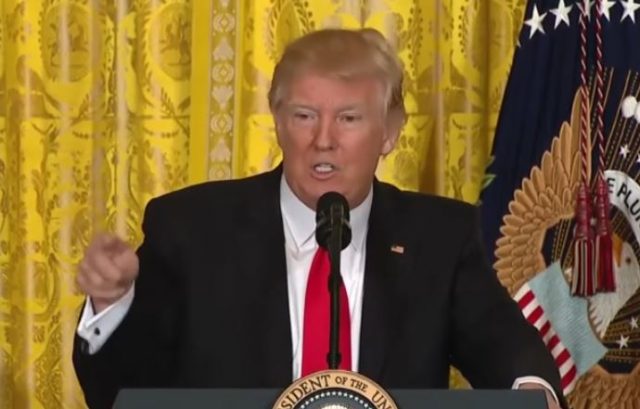 Despite much discussion in the media about whether a complaint which President Donald Trump‘s lawyers are threatening to file against former FBI Director James Comey for “leaking” government documents has involved executive privilege, violates non-disclosure agreements and/or FBI policy directives, none may be directly relevant because Comey is no longer a government employee.
Despite much discussion in the media about whether a complaint which President Donald Trump‘s lawyers are threatening to file against former FBI Director James Comey for “leaking” government documents has involved executive privilege, violates non-disclosure agreements and/or FBI policy directives, none may be directly relevant because Comey is no longer a government employee.
While it might be possible for a complaint to be filed under 18 U.S. Code § 641 which makes it a crime to convey “any records . . . of any [federal] department or agency thereof,” any such prosecution might well hinge on two issues which came up when I obtained a court order requiring the appointment of an Independent Counsel to investigate Debategate.
In that case there was “specific and credible evidence” (the statutory standard) that one of more government employees had leaked to Richard Nixon, then the Republican candidate for President, materials prepared by President Jimmy Carter‘s employees to help their boss in the presidential debate.
However, it was argued that no crime could have been committed because no documents had been taken from the government – instead, copies had been made, and passed along to Nixon’s people.
18 U.S. Code § 641 provides:
whoever embezzles, steals, purloins, or knowingly converts to his use or the use of another, or without authority, sells, conveys or disposes of any record, voucher, money, or thing of value of the United States or of any department or agency thereof, or any property made or being made under contract for the United States or any department or agency thereof” shall be guilty of a crime.
Thus it was suggested that no document had been physically stolen, purloined or converted, since copies had been made, while the original documents remained in the government’s possession. It was also argued that, although the documents had been made by government employees on government time and in government facilities, they were not clearly government documents.
I was able to prevail on both those issues, and to get a federal judge to order the appointment of an Independent Counsel to investigate possible crimes involved in Debategate, although the order was later reversed on an unrelated technicality.
Here, two very similar issues may well determine whether any complaint against Comey would warrant an investigation: (1) are the documents government “records” or “things of value,” considering how, when, and by whom they were made?; and (2) does making a copy of such documents, and providing the copies to a third party, constitute “stealing” or “converting.” under the statute.
If an investigation is in fact opened, that very fact would likely undermine Comey’s credibility as a witness in any criminal or civil proceeding.
Also, since it appears clear that special counsel Robert Mueller and Comey are friends, and that Mueller is apparently counting on Comey’s assistance as a witness or otherwise, there might be, at the very least, the appearance of a conflict on interest with the Department of Justice.
Everything which has occurred to date would make a great law school exam question, because the legal issues – including whether a President can be guilty of obstruction of justice, whether a sitting President can be indicted, to what extent does executive privilege and/or whistle blower protection apply, etc. – lead us into largely uncharted waters and are subject to interpretation.
[Image via screengrab]
This is an opinion piece. The views expressed in this article are those of just the author.